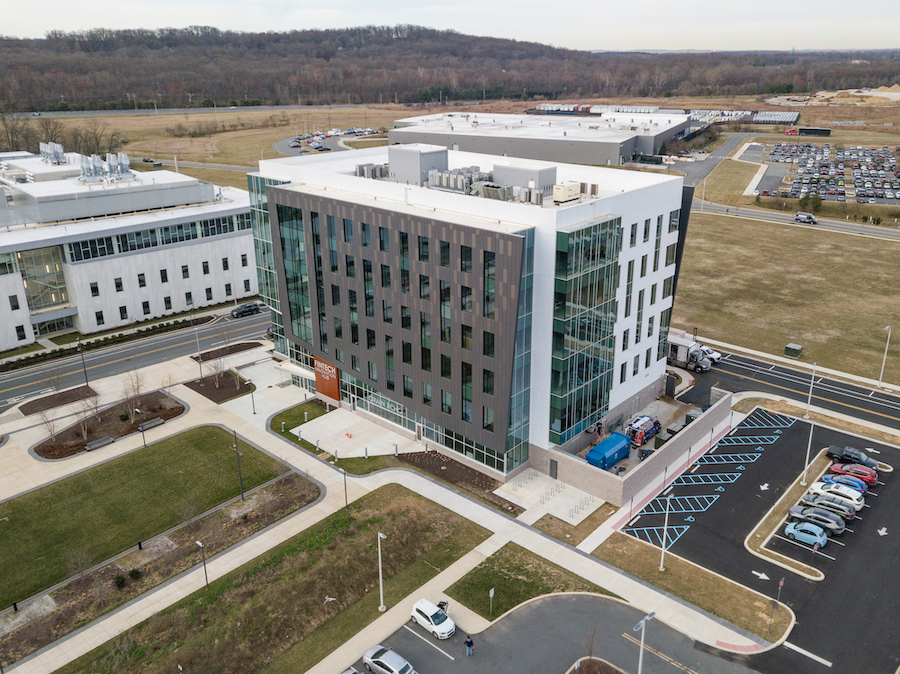Delaware has long been known as a finance state — and, more recently, a fintech state.
But maybe Delaware’s status as a financial hub is evolving into something more niche, a specific kind of fintech that is less about building wealth in general and more about making wealth-building equitable.
Take The FinTech Innovation Hub at the University of Delaware’s Science, Technology and Advanced Research (STAR) Campus in Newark: The six-story, 100,000-square-foot building is a Delaware Technology Park (DTP) project backed by Discover and the Small Business Development Center (SBDC). It acts as a fintech hub that focuses on the low- to moderate-income sector and creating technologies to help grow wealth in underserved communities.
“[Delaware is] a financial services state, but what we wanted to work on was financial equity and health equity,” said Mike Bowman, CEO of DTP. “Those two areas are really combined. And that, in fact, is the mission of the FinTech Innovation Hub.”
This fall, UD students from the Lerner College of Business are taking classes in the new building. But, like other buildings on the STAR Campus, including the Chemours R&D building, the FinTech Innovation Hub is privately owned with university, nonprofit and public partnerships.
In the case of the FinTech Hub, it’s not only the current headquarters of DTP, it also has space for plenty of other relevant companies and organizations, including Tech Impact’s Data Innovation Lab, The Kendal Corporation and the Office of Economic Innovation Partners. Apex Accelerators, a program that teaches business owners how to get into government contracting, has a home there, and the building has its own coworking space.
Kristen Castell, a corporate financial services professional based in New York City who worked for BlackRock and JPMorgan Chase before pivoting to impact work — including helping to build Seeds, a B2B platform for values-aligned investing — is the managing director for the new non-profit Center for Accelerating Financial Equity (CAFE), an accelerator program for fintech startups founded by Charlie Horn. CAFE, which aims to address financial health and wellness for underserved communities, will also have a home at the FinTech Innovation Hub.
“I’ve aligned my life around this financial inclusion mission,” Castell told Technical.ly. “I love helping build companies, I love networking, meeting entrepreneurs and helping them grow and wanted to do that for my full-time job. So when I got connected down here to what’s going on with the new FinTech Innovation Hub, it was just my dream opportunity.”
With the help of Delaware’s US Senators Tom Carper and Chris Coons, CAFE secured two years of funding from the Small Business Administration — enough to get the program off the ground and help impact fintech startups from the region get the outcomes they’re aiming for. The program is hybrid virtual, and while startups don’t have to be Delaware-based, they do have to have impact in Delaware.
While the participating companies have not yet been selected, examples of impact fintech products include, for example, a platform to help employees understand their work benefits better or an app that gamifies financial wellness education.
“The whole point is active solutions, and how we help those companies grow toward that,” said Castell.
In addition to the accelerator for established companies, the FinTech Innovation Hub will also have an incubator for early-stage startups. This program will be managed by Pedro Moore, a Delaware-based venture capital advisor and founder of FundingFuel who has worked with Daymond John from “Shark Tank.” Moore also works closely with Delaware State University, another university Bowman hopes to collaborate with through the accelerator and incubator.
Current CAFE partners include The Financial Health Network (FHN), the largest network of its kind in the US, formerly largely funded by JP Morgan Chase. Bowman says that when that funding stopped this year, FHN stopped its accelerator program.
“They saw our [accelerator] and they said, ‘We’d like to work with you on that,’” Bowman said. “It’s not that there’s not a lot of accelerators around the country. Ours has a very specific theme. It’s not any kind of company or any kind of market.”







